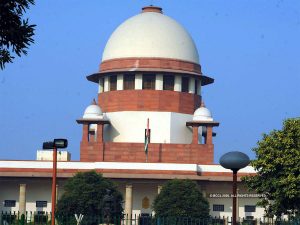Judges Recusal:

Justices D.Y. Chandrachud and A.S. Bopanna of the Supreme Court recused themselves from hearing a dispute among the States of Telangana, Andhra Pradesh and Karnataka on the allocation of the Krishna river water.
- When there is a conflict of interest, a judge can withdraw from hearing a case to prevent creating a perception that she carried a bias while deciding the case.
- The conflict of interest can be in many ways — from holding shares in a company that is a litigant to having a prior or personal association with a party involved in the case.
- Another instance for recusal is when an appeal is filed in the Supreme Court against a judgement of a High Court that may have been delivered by the SC judge when she was in the HC.
- The practice stems from the cardinal principle of due process of law that nobody can be a judge in her own case.
- Since there are no formal rules governing the process, it is often left to individual judges to record reasons for recusal.
- Some judges disclose the reasons in open court; in some cases, the reasons are apparent.
- The decision to recuse generally comes from the judge herself as it rests on the conscience and discretion of the judge to disclose any potential conflict of interest.
- In some circumstances, lawyers or parties in the case bring it up before the judge.
- If a judge recuses, the case is listed before the Chief Justice for allotment to a fresh Bench




